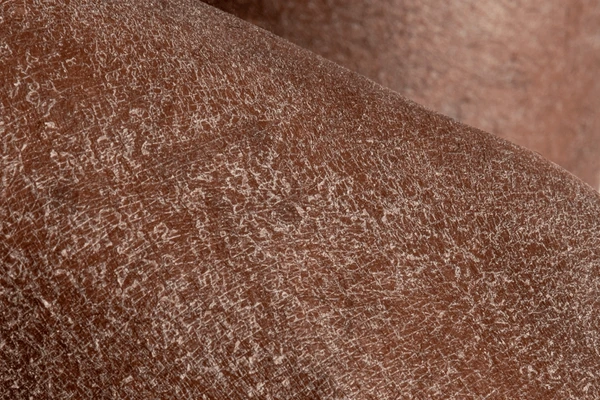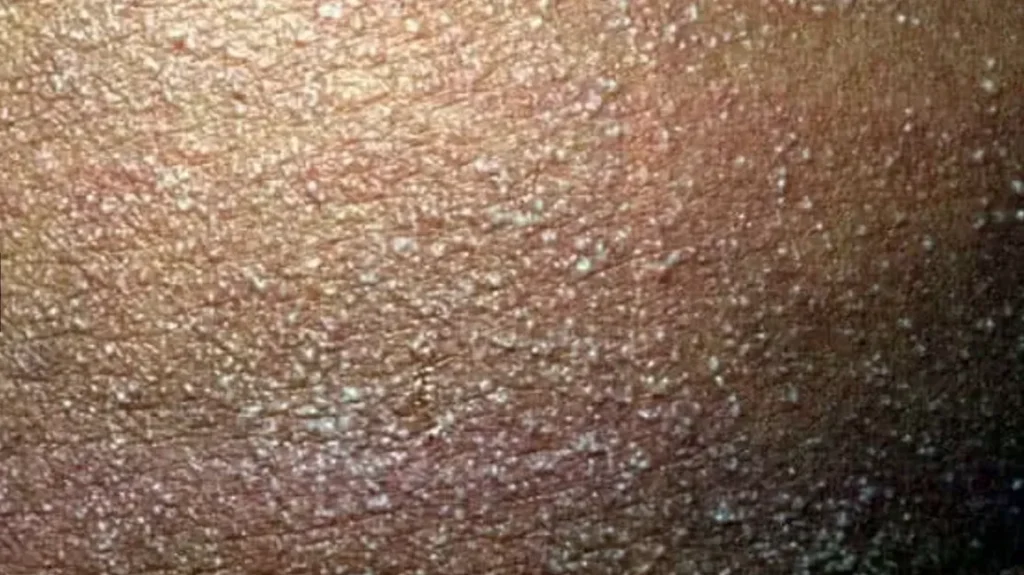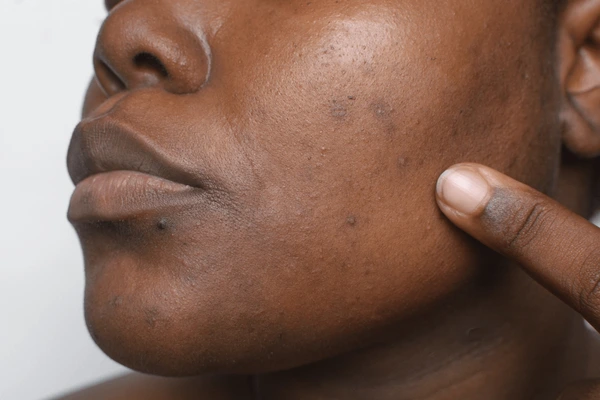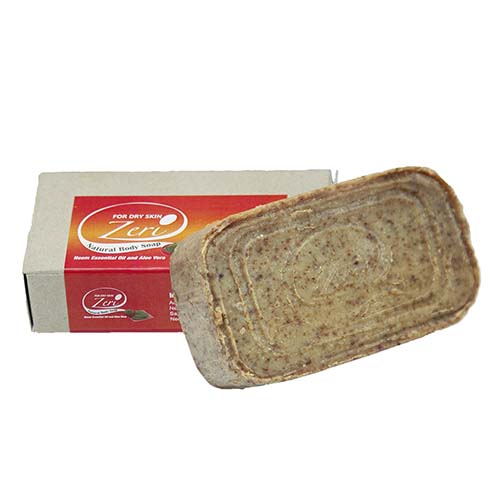Introduction: Why Your Plate Matters for Your Skin
Your skin is the largest organ of your body, and just like your heart, liver or brain, it responds to what you eat every day. Many people look for the perfect soap or cream to deal with rashes on face, itching or hyperpigmentation but often overlook a major factor: diet. The relationship between diet and skin health is undeniable. Nutrient-rich foods can improve complexion, reduce inflammation and slow down aging, while poor dietary choices may worsen acne, cause flare-ups of dermatitis or lead to rashes.

In this blog, we’ll explore in detail how diet shapes your skin health, the link between food sensitivities and rashes, the role of hydration, vitamins and minerals, and how combining proper nutrition with natural soap can transform your skin care routine.
The Skin as a Mirror of Internal Health
The skin acts as a window into what’s happening inside the body. When toxins accumulate or essential nutrients are lacking, the skin may show signs such as:
- Rashes and itching
- Dryness and flakiness
- Hyperpigmentation
- Acne and pimples
- Premature aging (wrinkles, fine lines)

According to American Academy of Dermatology, many skin conditions have underlying lifestyle or dietary triggers. That means what you put on your plate can be just as important as what soap you use on your face.
Food and Rashes: The Diet Connection
Rashes can appear suddenly or persist chronically. Common dietary triggers include:
- Dairy products: Milk, cheese and butter may worsen eczema and acne in sensitive people.
- Gluten: For those with celiac disease or gluten sensitivity, consuming wheat can lead to rashes and itching.
- Sugar: High-sugar diets increase inflammation, worsening rashes and breakouts.
- Processed foods: Packaged snacks, fried foods and artificial additives can contribute to skin irritation.

On the flip side, foods rich in omega-3 fatty acids (such as chia seeds and walnuts) have been shown to reduce inflammation and help with skin conditions like psoriasis and eczema.
For natural relief, pairing an anti-inflammatory diet with a gentle natural soap that contains tea tree, neem or moringa extracts can help soothe rashes on face and body. See more in our natural soap benefits guide.
Diet and Itching: Could Food Be the Culprit?
Persistent itching is often linked to food sensitivities, liver function or histamine reactions. For example:
- Histamine-rich foods (aged cheese, wine, fermented foods) may cause itching in sensitive individuals.
- Shellfish and nuts are common allergens that trigger skin reactions.
- Vitamin deficiencies (especially Vitamin D and B12) can cause dry, itchy skin.

A diet high in hydrating foods like cucumber, watermelon and oranges supports moisture balance, while healthy fats (avocado, olive oil) help maintain the skin barrier.
When itching persists, combining dietary adjustments with a mild hypoallergenic soap for sensitive skin is often more effective than relying on skincare products alone.
Hyperpigmentation and Food Choices
Hyperpigmentation refers to dark patches on the skin caused by excess melanin. While sun exposure is a primary factor, diet also plays a role:
- Antioxidant-rich foods (berries, spinach, green tea) protect against UV damage that worsens pigmentation.
- Vitamin C (found in citrus, guava, and bell peppers) supports collagen and brightens the skin.
- Zinc (pumpkin seeds, chickpeas) regulates melanin production.

Alcohol and refined carbs can worsen oxidative stress, making pigmentation darker. A diet rich in natural, colorful foods can gradually restore an even skin tone.
Learn more about natural remedies for pigmentation in our article on how to naturally take care of skin blemishes.
For external care, a mild soap with moringa or neem oil can complement dietary changes by gently exfoliating and nourishing the skin.
Hydration: The Unsung Hero of Skin Health
One of the simplest ways to improve skin health is staying hydrated. Water helps flush toxins, supports elasticity, and reduces the risk of dry patches, rashes and itching.

However, hydration doesn’t come from water alone. Foods like cucumbers, celery and soups are excellent sources of moisture. Herbal teas such as chamomile also calm inflammation, reducing skin redness and irritation.
According to Harvard Health, dehydration can lead to dull, dry skin that is more prone to sensitivity.
The Role of Soap and Skincare Alongside Diet
While diet forms the foundation of skin health, skincare products—especially soap—play a crucial supporting role. Using harsh, chemical-based soaps can strip the skin of natural oils, worsening conditions like eczema, itching and hyperpigmentation.

Instead, use natural soap made with ingredients such as:
- Neem oil (anti-inflammatory and antibacterial)
- Moringa oil (rich in antioxidants)
- Shea butter (deeply moisturizing)
- Tea tree oil (acne-fighting and soothing)
These ingredients not only cleanse but also nourish the skin barrier. Combined with a balanced diet, they create a holistic skin health routine.
For a deeper dive, check out our full article on why natural soap is better for your skin health.
Foods That Heal: A Skin-Friendly Diet
To improve the relationship between diet and skin health, focus on a balanced diet filled with:
- Fruits and vegetables: High in vitamins, antioxidants and water.
- Lean proteins: Beans and lentils for collagen support.
- Healthy fats: Avocado, nuts and seeds for skin elasticity.
- Whole grains: Rich in fiber, supporting digestion and toxin elimination.
- Probiotics: garlic, onions and bananas for gut health, which is directly linked to skin clarity.

Avoiding excessive sugar, alcohol and processed foods helps reduce inflammation, keeping skin smooth and even.
The Gut-Skin Axis: Why Digestion Affects Rashes and Acne
Research shows a direct link between gut health and skin conditions. Poor digestion or an imbalanced gut microbiome can lead to rashes, itching, and breakouts. Probiotic-rich foods and prebiotics (like garlic, onions, and bananas) help restore balance.
An unhealthy gut often shows up as:
- Acne flare-ups
- Eczema and psoriasis
- Food-triggered rashes on face
Balancing gut bacteria not only improves digestion but also supports clearer, healthier skin.
Vitamins and Minerals Essential for Healthy Skin
- Vitamin A: Prevents dryness, supports cell turnover. Found in carrots, sweet potatoes.
- Vitamin C: Brightens skin, reduces hyperpigmentation. Found in oranges, strawberries.
- Vitamin D: Deficiency linked to rashes and itching. Sourced from sunlight and fortified foods.
- Zinc: Reduces acne and inflammation. Found in pumpkin seeds, beans.
- Omega-3 fatty acids: Reduce skin inflammation. Found in chia seeds and flaxseeds.
Including these nutrients ensures long-term skin resilience and natural glow.
Lifestyle Habits That Enhance Skin Health
Alongside diet, lifestyle choices impact skin appearance:
- Adequate sleep prevents dark circles and dull skin.
- Exercise boosts blood circulation, nourishing skin cells.
- Stress management reduces flare-ups of eczema and acne.
- Using natural soap avoids exposure to harmful chemicals.

Small daily habits, when combined with a healthy diet, have a powerful cumulative effect on skin health.
Useful Links for Further Reading
- American Academy of Dermatology – Nutrition and Skin Health
- Harvard Health – Hydration and Skin
- NIH – The Role of Micronutrients in Skin Health
Conclusion: Nourish Inside and Out
The relationship between diet and skin health is undeniable. From preventing rashes and itching to reducing hyperpigmentation, the foods you choose daily shape the health of your skin. While natural soap, moisturizers, and creams are important, true healing begins with nutrition.
By adopting a balanced diet rich in vitamins, antioxidants, and healthy fats—and pairing it with gentle, nourishing soap—you create a powerful skin care routine that works from both the inside and outside.
Your skin doesn’t just need care; it needs nourishment. And the best place to start is your plate.
